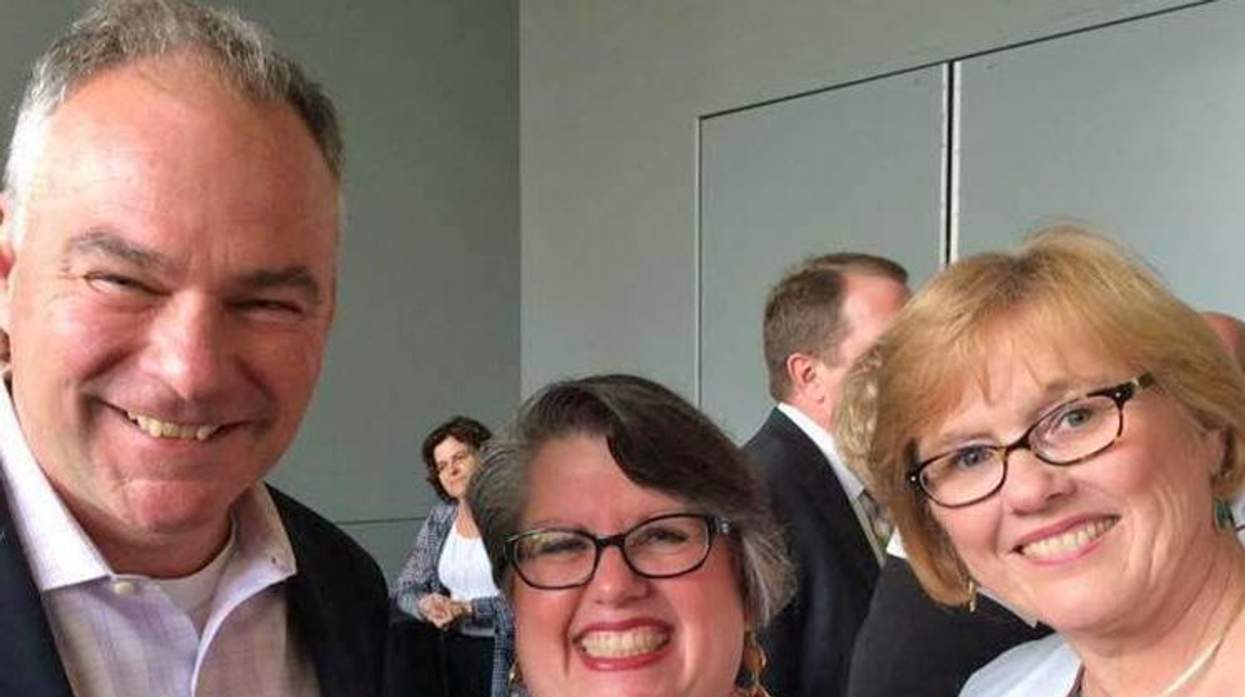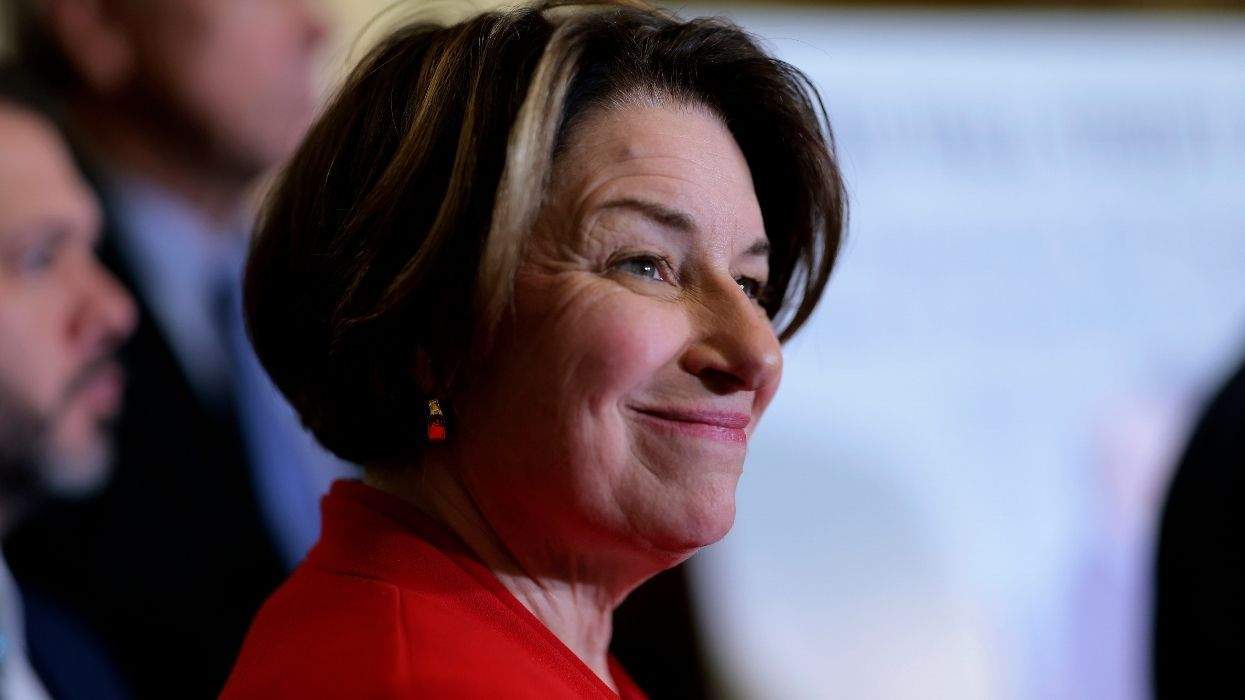Virginia Sen. Tim Kaine brought a same-sex couple as his guests to the vice-presidential debate Tuesday but still never challenged Mike Pence about discrimination against these couples that he backed as Indiana governor.
Carol Schall and Mary Townley brought their daughter, Emily, to the event. And like a lot of LGBT people who watched the debate, they were left wanting.
Kaine failed to press Pence on his LGBT rights record Tuesday night. Throughout the 90-minute debate, LGBT people were mentioned just once -- during the vigorous back-and-forth on Donald Trump's admiration of Russian president Vladimir Putin. Kaine noted that Putin "persecutes LGBT folks and journalists," without tying that to his opponent's own history of discrimination.
The couple told The Advocate that they were "disappointed" that LGBT issues weren't raised. But they have no doubt the Democratic ticket remains the best choice for LGBT voters.
"To my mind, there's no doubt which ticket is going to advance the rights and concerns of LGBT Americans, and that's the Clinton-Kaine ticket," Schall said in a phone interview. "Trump and Pence have promised to nominate and elect justices of the Supreme Court that would overturn Obergefell. They've promised to sign resolutions that would lead to a non-inclusive army that denies LGBT citizens the right to serve their country."
The women know a thing or two about standing up for your rights. They were co-plaintiffs in a 2014 lawsuit that resulted in Virginia's marriage ban being overturned by a three-judge panel of the U.S. Court of Appeals for the Fourth Circuit. That case, Bostic v. Schaefer, also led to same-sex marriage prohibitions being struck down in West Virginia, North Carolina, and South Carolina, all of which are under the court's jurisdiction.
The ruling was one of several influential decisions that led to the Supreme Court taking up Obergefell v. Hodges in 2015, which resulted in legalization of same-sex marriage nationwide.
The couple's support is a testament Kaine's own evolution on LGBT issues. When running for lieutenant governor in 2001, the senator came out against marriage equality, instead pushing what he called "civil benefits" for same-sex couples. He did not define how that differed from civil unions or domestic partnerships. Kaine, however, was the only candidate in the race to back any kind of legal recognition for same-sex couples at the time.
The Democrat's stance would remain unclear over the years. A decade later, Kaine told the Associated Press that he never "supported gay civil unions [or] gay marriages" but believed in workplace protections for LGBT people.
"I do believe that people shouldn't be kicked out of their jobs or discriminated against because of who they are," he said.
Finally, in 2013, Kaine backed marriage rights for same-sex couples. This was just a week after Hillary Clinton, then the secretary of State, announced her own support for the freedom to marry. Throughout his career, Kaine has been in favor of adoption rights for gay parents; he also, as governor of Virginia, signed an executive order in 2006 preventing government employees from being fired because of their sexual orientation or gender identity.
That record stands in stark relief to Kaine's debate opponent, who backed one of the nation's harshest laws targeting the LGBT community.
In 2015, Gov. Pence signed into law the Religious Freedom Restoration Act, which gave businesses the license to discriminate against customers based on their "sincerely held religious beliefs." That law was partly "fixed" after a nationwide boycott that cost the state of Indiana $60 million in potential business, yet it still remains on the books.
Critics argue the law was a turning point in the onslaught of anti-LGBT legislation introduced by state legislatures since its passage. In 2016 there were over 200 such laws under consideration across the country -- in states like Florida, Oklahoma, and South Carolina.
Many of those bills failed, but others did not. North Carolina passed House Bill 2 in March, which forces trans people to use public restrooms that do not correspond with their gender identity when visiting government buildings and schools. It also prevents local governments from enacting their own ordinances to protect the LGBT community.
Prior to RFRA, Pence voted as a member of Congress in 2007 against the Employment Non-Discrimination Act, which would've prevented workers from being fired on the basis of sexual orientation or gender identity. While running for the House of Representatives in 2000, the Republican also called for lifesaving HIV funding to be diverted from the Ryan White Care Act to programs "which provide assistance to those seeking to change their sexual behavior."
Schall said it was important for the couple to be present Tuesday night because they put a face on the populations hurt by Pence's anti-LGBT history.
"It's easy to demonize the other," she said. "It's easy for Mike Pence to sign a bill, as he did with RFRA, when there are no LGBT citizens standing in front of him. He can turn us into an ugly green monster. With us sitting in the audience, he would have to look in our eye and say which rights he thought we do not deserve by virtue of who we are."
"When you look bigotry in the eye," Schall continued, "and you're not afraid to call it out for what it is, it fades very quickly."















